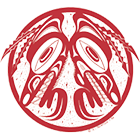TTMC 750V - Plumbing Practical Skills for the Homeowner
Course Description
This course is suitable for homeowners, new service plumbers, and general contractors who want to learn more about residential plumbing systems. Participants will learn how plumbing systems work including: how potable water is brought into our homes, how it is distributed and used, and how it is removed disposed of. The goal is to deliver an overview of residential plumbing systems while providing an opportunity for hands-on experience working with plumbing equipment. Topics will range from toilets to renovations and include plumbing terms, materials, fittings, tools and methods. Basic plumbing repairs will be demonstrated and discussed, and participants will practice their skills with new and older tools and technology.
A key learning will be knowing when to take on household repairs and when to call in an experienced professional for the job.
Learner Outcomes
- Acquire the skills to use common plumbing tools appropriately.
- Understand how water is distributed within the home.
- Learn about water meters, testing for leaks, valves, and everything drainage.
- Learn about hot water heating systems, faucets, fixtures and appliances.
- Understand renovation permits and code requirements.
- Know what is required for service and general maintenance.
- Recognize what to look out for in terms of repairs.
Notes
Students should be in good physical health and have good hand-eye coordination and manual dexterity.
Students are required to supply their own CSA approved footwear and safety glasses.


